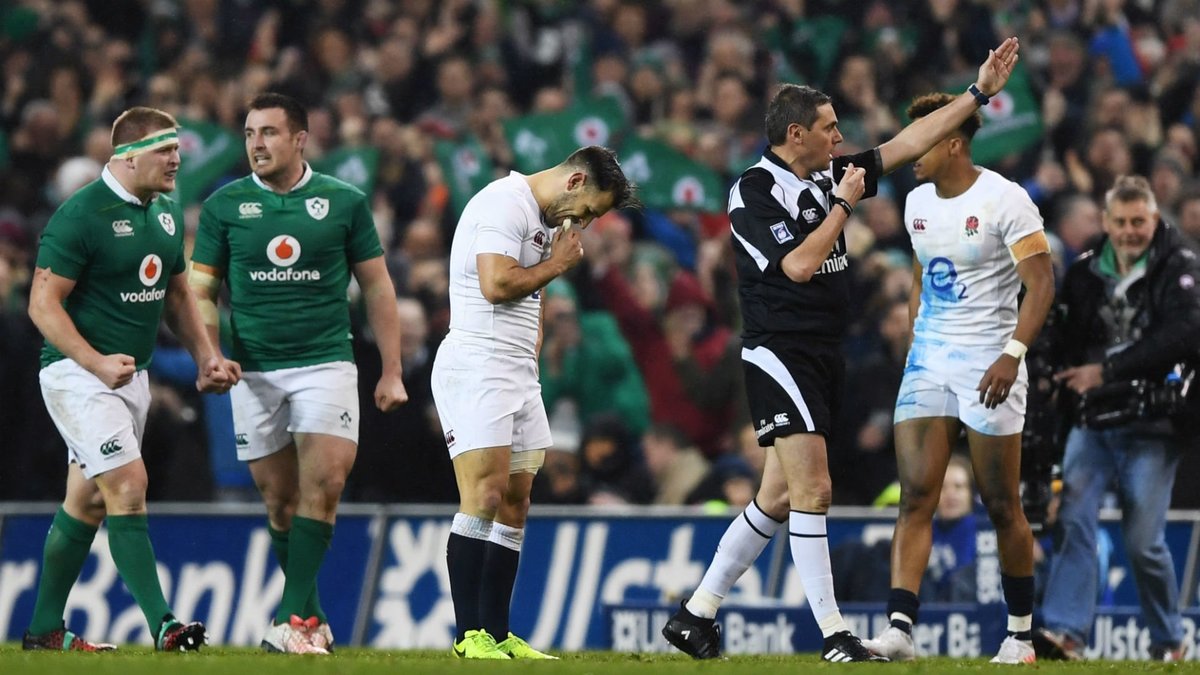England's 'finishers' meet their match in Ireland, but defeat keeps feet on the ground

‘Finishers’ is a word that has entered the lexicon of northern-hemisphere rugby since Eddie Jones was appointed England coach in November 2015.
Used by the Australian to describe those players who come off the bench to wrap up a victory, the term has come into common usage over the course of this year’s Six Nations.
But the increased prevalence of the word owes much to England’s reliance on their second-half replacements.
Despite defending their title and equalling New Zealand’s record of 18 consecutive Test victories, England – with the exception of their crushing victory over Scotland – have had to grind out results, or win ugly, on their way to those accolades.
Ben Te’o scored the try that edged England to a 19-16 victory over France after coming on with 12 minutes to play on the opening weekend, before Jones emptied his bench once more to snatch a 21-16 victory in the closing stages in Wales.
Half of England’s six tries then came from the bench as they left it late to overcome Italy’s mischievous no-ruck tactics at Twickenham, winning 36-15.
Even in their 61-21 win over Scotland – a match England dominated from start to finish – four tries were scored by replacements, although one of those did come courtesy of Anthony Watson, who stepped in for the injured Elliot Daly early on.
Over the course of those four matches, 62 per cent of England’s points were scored in the second half of matches – the highest percentage of any team in the championship.
But England’s finishers met their match against Ireland in Dublin on Saturday.
Ireland had ended the All Blacks‘ winning run at 18 in November and gave England the same treatment with a tactically astute, defensively robust display, winning 13-9 courtesy of an Iain Henderson try and eight points from the boot of Jonathan Sexton, who had to cope with a series of bone-crunching challenges over the course of the 80 minutes.
Owen Farrell’s nine points kept England in touch but, for once, Jones’ intended match-winners failed to have the desired effect.
Te’o left the field with a head injury seven minutes after entering the fray, while the likes of Jamie George, Danny Care and Jack Nowell had little impact.
England had not lost a Six Nations match since their last trip to the Aviva Stadium in 2015, which – before Saturday – was also the last time they failed to score a try, touching down in 26 consecutive Tests since.
Not the result we wanted, but it still feels pretty good to win back-to-back @SixNationsRugby titles… #WearTheRose pic.twitter.com/VpxW3T2glq
— England Rugby (@EnglandRugby) March 18, 2017
And while the defeat should be no cause for alarm – England had already won the championship and equalled a world record, after all – Jones will be eager to ensure the role of his finishers going forward is to see out a win, not to rescue a result from the jaws of defeat.
There is no question that England are one of the finest teams in world rugby today, and their failure to clinch a second successive Grand Slam and 19th Test win on the bounce should not detract from the remarkable work Jones has done in turning his side around since their 2015 Rugby World Cup debacle.
Captain Dylan Hartley conceded after the match that England were “not the finished article” and “not quite there yet as a team”.
This weekend’s Dublin disappointment should help keep feet on the ground and refocus minds as Jones plots his route to World Cup glory in 2019.































